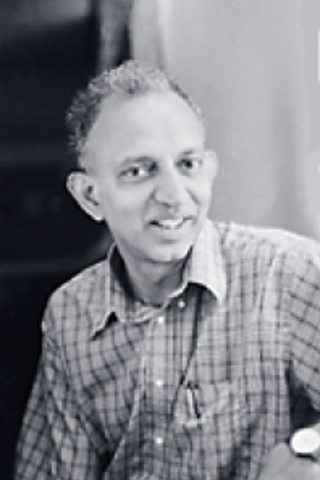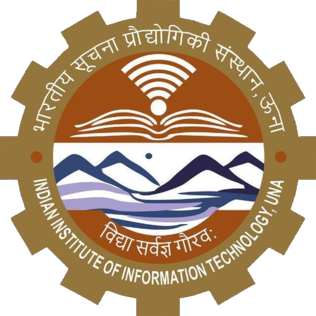
University of Visvesvaraya College of Engineering (UVCE) was established in 1917, under the name Government Engineering College, by Bharat Ratna Sir M. Visvesvaraya. It is the 5th engineering college to be established in the country and 1st in Karnataka. UVCE is one of the few technical institutions in the country that is vested with the status of a university and autonomy on the lines of IITs. It is one of the oldest technical institutions in the country, imparting technical education leading to B.Tech., B. Arch., M.Tech., M. Arch. and PhD degrees in the various disciplines of Engineering and Architecture. The college is approved by the AICTE and the Government of Karnataka. UVCE has secured an NAAC accreditation score of 3.75. UVCE, while a constituent college of Bangalore University until 2022, secured an NIRF ranking of 64. The college used to receive financial aid under the TEQIP program from the World Bank.

Ravindran Kannan is a Principal Researcher at Microsoft Research India, where he leads the algorithms research group. He is also the first adjunct faculty of Computer Science and Automation Department of Indian Institute of Science.

Vijay Pandurang Bhatkar is an Indian computer scientist, IT leader and educationalist. He is best known as the architect of India's national initiative in supercomputing where he led the development of Param supercomputers. He is a Padma Shri, Padma Bhushan, and Maharashtra Bhushan awardee. Indian computer magazine Dataquest placed him among the pioneers of India's IT industry. He was the founder and executive director of Centre for Development of Advanced Computing (C-DAC) and is currently working on developing exascale supercomputing for India.

The Indian Institute of Technology Madras is a public technical university located in Chennai, Tamil Nadu, India. It is one of the eight public Institutes of Eminence of India. As an Indian Institute of Technology (IIT), IIT Madras is also recognised as an Institute of National Importance.
Ashok Jhunjhunwala is an Indian academic and innovator. He received his B.Tech. from the Indian Institute of Technology, Kanpur and PhD from the University of Maine. He has been a faculty member at the Indian Institute of Technology Madras since 1981. He is the President of IIT Madras Research Park and Chairman of International Institute of Information Technology, Hyderabad. During his career, he has contributed extensively to technology innovation and adoption in the Indian context.

The International School of Information Management (ISiM) is the first Indian i-School and is an autonomous constituent institute of the University of Mysore, located in Mysore in Karnataka, Southern India. ISiM was conceptualised and established in 2005, in collaboration with the leading information schools in the U.S – namely the School of Information at the University of Michigan, the School of Information Sciences at the University of Pittsburgh, and the School of Information Studies at Syracuse University, International Institute of Information Technology (IIIT) Bangalore, and Dalhousie University of Canada. ISiM was established with grants from the Ford Foundation and Bangalore based Informatics India Pvt. Ltd.

Senapathy “Kris” Gopalakrishnan is an Indian businessman and the chairman of Axilor Ventures, a startup accelerator. He is one of the co-founders of Infosys, having served as its CEO and managing director from 2007 to 2011 and vice chairman from 2011 to 2014.
Chandrasekaran Mohan is an Indian-born American computer scientist. He was born on 3 August 1955 in Tamil Nadu, India. After growing up there and finishing his undergraduate studies in Chennai, he moved to the United States in 1977 for graduate studies, naturalizing in 2007. In June 2020, he retired from being an IBM Fellow at the IBM Almaden Research Center after working at IBM Research for 38.5 years. Currently, he is a visiting professor at China's Tsinghua University. He is also an Honorary Advisor at the Tamil Nadu e-Governance Agency (TNeGA) in Chennai and an advisor at the Kerala Blockchain Academy in Kerala.

Uday B. Desai is an Indian academician and the founding director of Indian Institute of Technology Hyderabad. He is a Professor Emeritus in Electrical engineering Chancellor ICFAI Dehradun, Chancellor Anurag University, Hyderabad Honorary Distinguished Professor Plaksha University and a Strategic Consultant for TSDSI. He served as the director of IIT Hyderabad from June 2009 to July 2019, and is credited for taking it to rank among the top 10 engineering colleges in India in the NIRF engineering ranking. He was mentor director of IIT Bhilai from May 2016 to February 2017 and mentor director for IIIT Chittoor 2013–2018.

Chintalapati Srinivasa Raju is an Indian entrepreneur and Private Equity Investor. Throughout his career, he has been associated with Satyam Computer Services, Cognizant, and iLabs Group. Srini Raju also founded TV9 media group and Sri City, it was the first "Integrated Smart City" of its kind in India.

Noshir S. Contractor is an Indian-American network scientist who is the Jane S. & William J. White Professor of Behavioral Sciences in the McCormick School of Engineering & Applied Science, the School of Communication and the Kellogg School of Management and the director of the Science of Networks in Communities (SONIC) Research Group at Northwestern University. He is also the former President of the International Communication Association (ICA) and the current Executive Director of the Web Science Trust.
Two major engineering entrance examinations are used for admission to engineering institutes across India, the Indian Institute of Technology Joint Entrance Examination (IIT-JEE) and the All India Engineering Entrance Examination (AIEEE). In 2010, a proposal for a common engineering entrance examination was made by the Ministry of Human Resource Development. The proposal has gone through several names and formats and is expected to enter use in 2024. Yet, the common entrance exam for all engineering courses in India has not become effective, even for the academic year 2021–22.

Angarai Ganesan Ramakrishnan is a senior professor of electrical engineering and an associate faculty of Centre for Neuroscience, both at Indian Institute of Science, Bangalore, India. He also holds an adjunct faculty position in the Department of Heritage Science and Technology at the Indian Institute of Technology, Hyderabad. He heads the Medical intelligence and language engineering lab. He also won the Manthan Award 2015 for his project, “Madhura - the gift of voice”, under the category, e-education, learning, and employment. He is also one of the founder directors of RaGaVeRa Indic Technologies private limited recognized by the Karnataka Government as one of the Elevate 2019 Startup winners. He is one of the advisors of Bhashini AI Solutions private limited also recognized by the Karnataka Government as one of the Elevate 2019 Startup winners. From January 2017 to June 2020, he was a Member of the Karnataka Knowledge Commission. He is a Fellow of the Indian National Academy of Engineering (INAE) since November 2019. Since August 2022, he is also the Advisor - Neuroscience to Feedfront Technologies Pvt. Ltd., a startup based in Bangalore.

Victor Bahl is an American Technical Fellow and CTO of Azure for Operators at Microsoft. He started networking research at Microsoft. He is known for his research contributions to white space radio data networks, radio signal-strength based indoor positioning systems, multi-radio wireless systems, wireless network virtualization, edge computing, and for bringing wireless links into the datacenter. He is also known for his leadership of the mobile computing community as the co-founder of the ACM Special Interest Group on Mobility of Systems, Users, Data, and Computing (SIGMOBILE). He is the founder of international conference on Mobile Systems, Applications, and Services Conference (MobiSys), and the founder of ACM Mobile Computing and Communications Review, a quarterly scientific journal that publishes peer-reviewed technical papers, opinion columns, and news stories related to wireless communications and mobility. Bahl has received important awards; delivered dozens of keynotes and plenary talks at conferences and workshops; delivered over six dozen distinguished seminars at universities; written over hundred papers with more than 65,000 citations and awarded over 100 US and international patents. He is a Fellow of the Association for Computing Machinery, IEEE, and American Association for the Advancement of Science.

Rajpal Singh Sirohi is an Indian optics physicist, academic administrator, educator, and researcher in optical metrology. He is the former Director of IIT Delhi and Vice Chancellor of several universities. He is the Fellow of INAE, NASI, OSA, SPIE, OSI and ISoI. He has received numerous awards including Gabor Award of SPIE, Galileo Award of ICO. He is also the recipient of Padma Shri by Govt. of India. He is the author of about 430 papers and several books.

Indian Institute of Information Technology, Manipur (IIITM) is one among the prestigious Indian Institutes of Information Technology, a group of 25 Interdisciplinary Technical Universities of higher education started by the Government of India, focused on Information Technology. It is an "Institute of National Importance", declared by an act of parliament.

Indian Institute of Information Technology Una is one of the Indian Institutes of Information Technology located at Vill. Saloh, Teh. Haroli, Distt. Una Himachal Pradesh-177209, Himachal Pradesh.. Established in 2014, it was recognized as an Institute of National Importance. IIIT Una is a joint venture of the Ministry of Human Resource Development, Government of India, the Govt. of Himachal Pradesh, with Industries in Public-Private Partnership model. The industries are H.P. Power Corporation and H.P. Power Transmission Corporation.

Vaidyeswaran Rajaraman is an Indian engineer, academic and writer, known for his pioneering efforts in the field of Computer Science Education in India. He is credited with the establishment of the first academic program in computer science in India, which he helped initiate at the Indian Institute of Technology, Kanpur in 1965. An elected fellow of all the Indian science academies, he is a recipient of Shanti Swarup Bhatnagar Prize, the highest Indian award in Science and Technology category for young scientists and several other honors including Om Prakash Bhasin Award and Homi Bhabha Prize. The Government of India awarded him the third highest civilian honor of the Padma Bhushan, in 1998, for his contributions to science.

Gang Hua is a Chinese-American computer scientist who specializes in the field of computer vision and pattern recognition. He is an IEEE Fellow, IAPR Fellow and ACM Distinguished Scientist. He is a key contributor to Microsoft's Facial Recognition technologies.
















